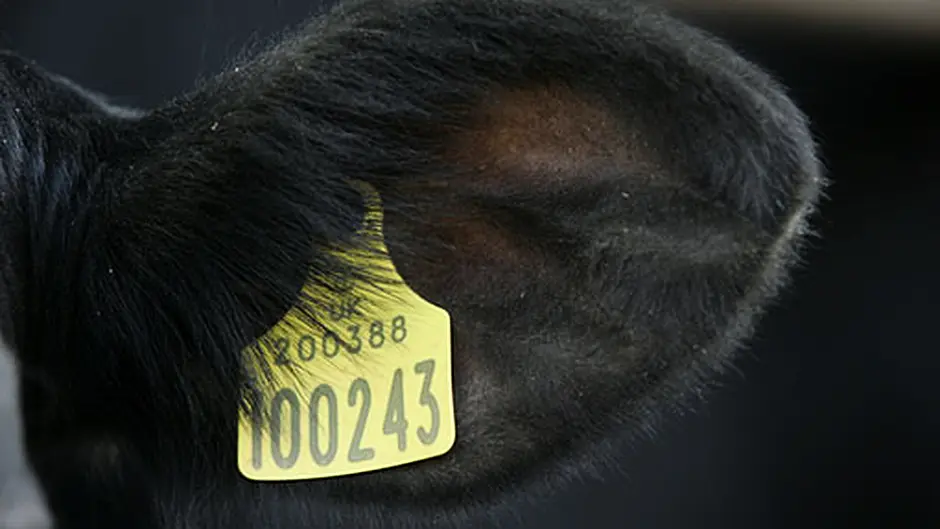The planned changes to the ear tags supply process has been met with a mixed reaction – and a few raised eyebrows – among farming bodies this week.
THE planned changes to the ear tags supply process has been met with a mixed reaction – and a few raised eyebrows – among farming bodies this week.
The Department of Agriculture Food & Marine confirmed the new supply process, which will allow all suppliers of bovine ear tags, whose ear tags meet the requirements for bovine ID set down in EU legislation, and the Department specification, to supply approved tags from November 1st.
The EU Commission has decided that it will take a number of months to consider an application by Ireland for new proposed standards relating to tag approval. In view of this decision by the Commission, and in order to avoid any disruption in the supply of ear tags, the Department has decided to proceed to approve tag suppliers whose ear-tags meet the requirements for bovine identification.
These requirements include that the tags are tamper-proof and are not re-usable, as objectively assessed by independent experts. The new arrangements will remain in place until December 31st 2017.
The Department has met potential tag suppliers and has invited them to submit applications for approval. The Department has advised tag suppliers on issues relating to the suitability of tissue tags for BVD testing purposes and has offered to provide further guidance and assistance as necessary. ‘Tissue tags’, used for BVD testing purposes, can be approved as the second official ear tag if they meet requirements.
Meanwhile, at a meeting with senior Department officials recently, IFA animal health chairman Bert Stewart strongly criticised the move by the Department to ignore the legal BVD testing obligations of farmers in the national eradication programme in the latest tag approval document.
Bert Stewart said the cornerstone of the BVD programme to date has been the efficient sampling and testing approach provided to all farmers through the use of the national ID tag. This has now been fundamentally dismantled by the Department of Agriculture and poses huge challenges in achieving a successful outcome in the BVD eradication programme.
The IFA chairman said the Department cannot wash their hands of their responsibilities in this area and must come forward with strong financial support for farmers who will now be exposed to further complexities and cost increases if BVD is to be eradicated and for farmers to see a return on the €45m spent to date in the programme.
He said it is astounding that in the same week the Minister for Agriculture Michael Creed launched the consultation process for a National Farm Animal Health Strategy, his department have taken this step.
He said the tags supplied must provide the basis for all farmers to meet their legal testing obligations in the BVD programme, cost effectively.
In relation to the supply of identification tags, he said it is incumbent on the Department to ensure that all suppliers that are approved to supply tags to farmers are in a position to deliver a timely, efficient service with tags that are suitable for Irish livestock production systems, with minimal loss rates.
The IFA chairman said it is vital farmers do not experience any delays in the supply of tags under the new approval approach.
Bert Stewart said the tagging and traceability systems in place in Ireland are the cornerstone of our production standards; the integrity and robustness of this process must be protected at all times.
And the ICSA has given a guarded welcome to the decision to move to an approval process for the supply of cattle tags, which potentially will lead to competition. Following a meeting with the Department, ICSA president Patrick Kent said that it was vital there would be real competition as soon as the new regime commences on November 1st. ‘ICSA has long favoured competition between tag suppliers in order to give farmers the best chance of value for money, top service and durable tags,’ he said.
‘ICSA believes that farmers, not Department officials, are best placed to determine value for money and the durability of tags. Farmers have a vested interest in a number of tag manufacturers competing with each other. This is the best way to ensure ongoing effort to continuously improve the quality of the tag and also the turnaround time for delivering tags for new born calves. ‘But we do not want to see artificial delays in granting approval to quality tags and we have outlined our view that tags which are deemed good enough for the UK, Germany, France, Netherlands etc should also be deemed good enough in Ireland,’ he said. ‘ICSA will therefore be carefully monitoring the process and the decision taken can only truly be judged when we see several operators in business by November 1st.’
Mr Kent also explained that ICSA has insisted to the Department that farmers must be made aware the tag cost includes a 38 cent voluntary levy to ICBF. ‘We want to ensure that the tag ordering process makes this clear and that farmers have a straightforward choice in opting in or opting out of this levy,’ he said.








